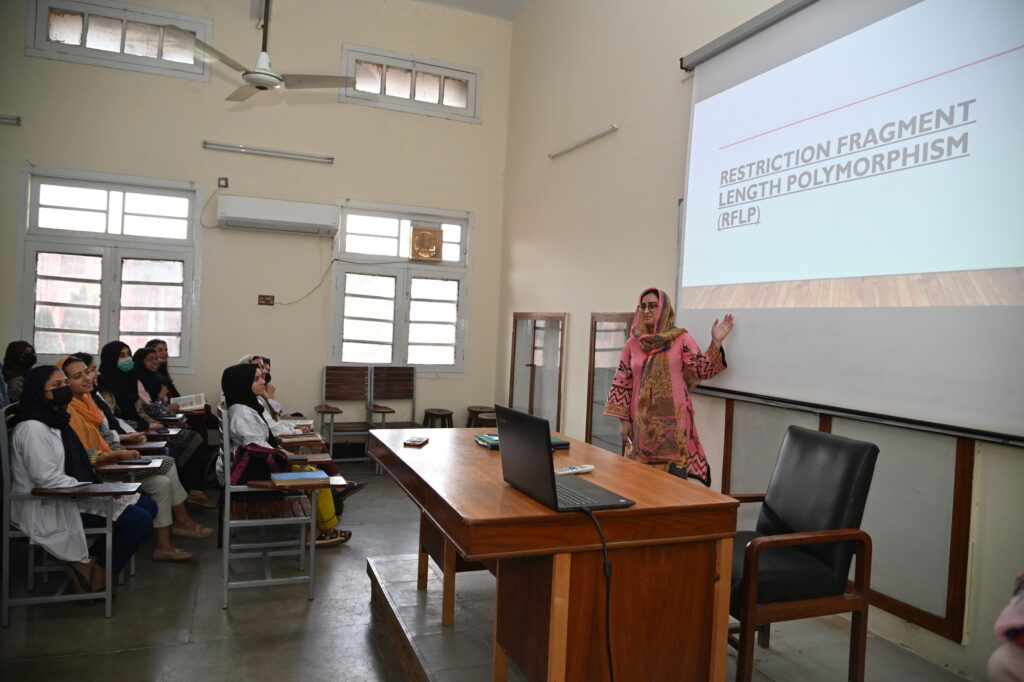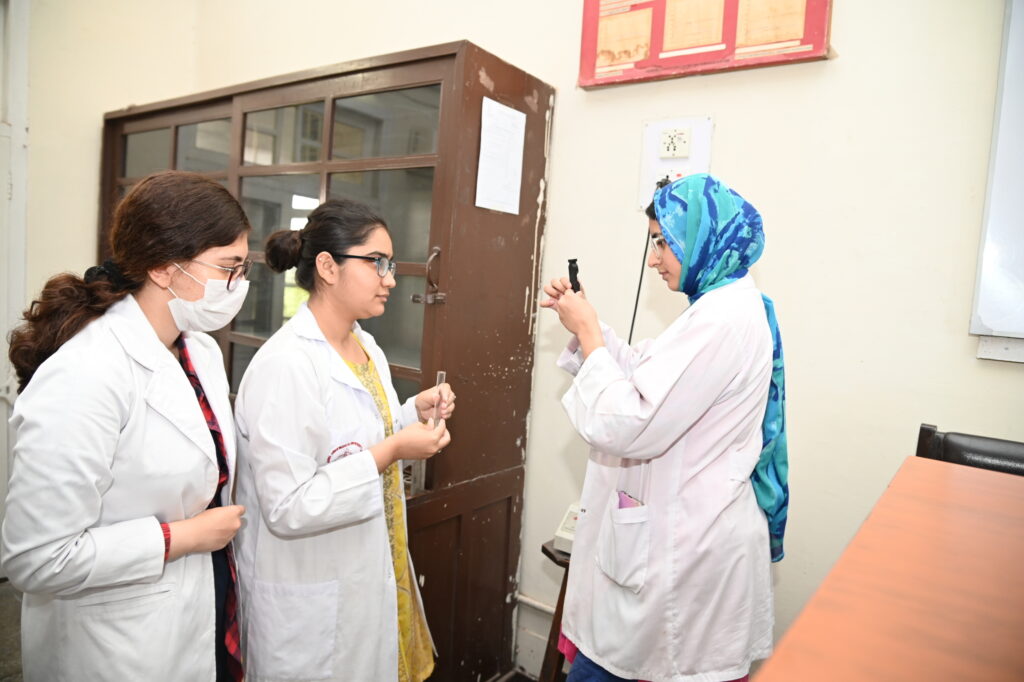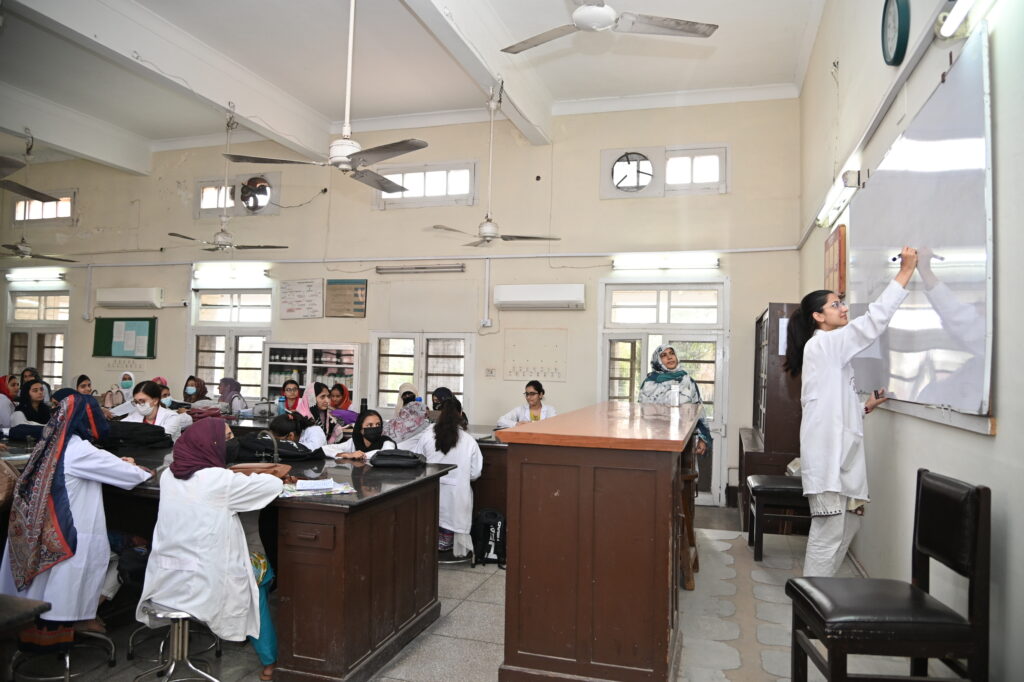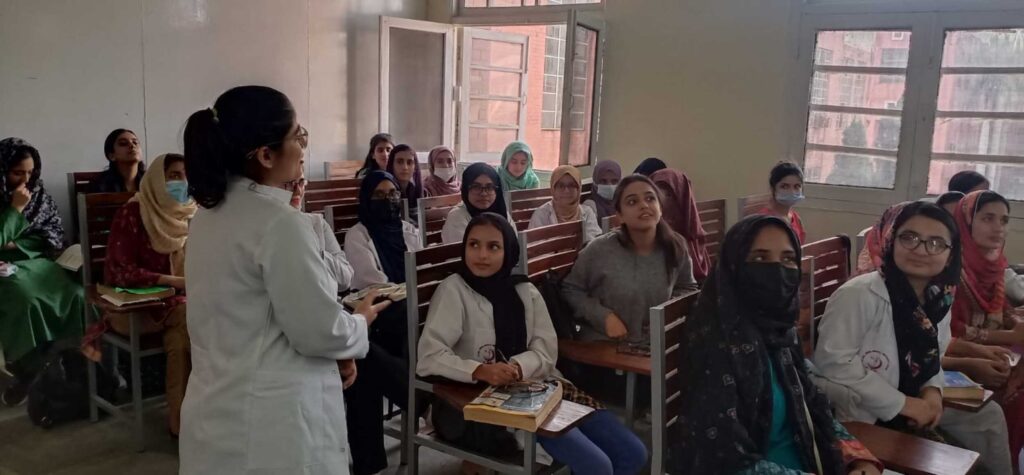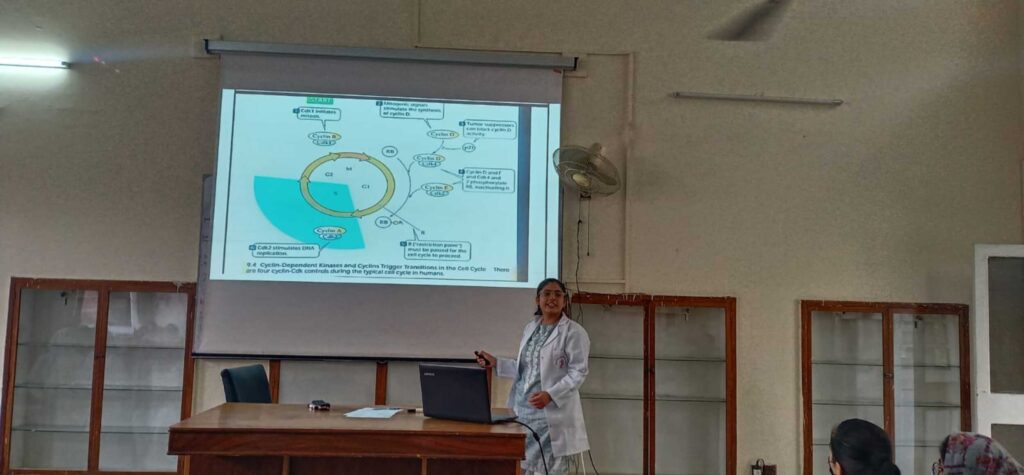Department of Biochemistry
Dr. Noor-ul-Ain Waheed
MBBS, MPhil (Biochemistry), CMT & CME (UHS), PhD scholar (KEMU)
Chairperson & Head of Biochemistry Department
Phone: +92-42-99211145-53 Ext: 191
E-Mail: n.waheed@fjmu.edu.pk
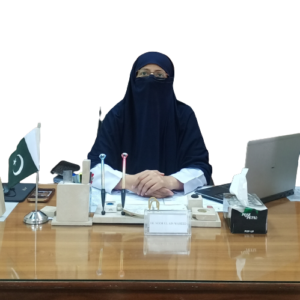
Introduction of the Department
The Department of Biochemistry at Fatima Jinnah Medical College was established in 1980 as a separate entity and was the first amongst all medical colleges affiliated to the University of the Punjab. Prof. Tasnim Majid was its founding head and was actively involved in the establishment of the department.
The department was not only involved in teaching MBBS undergraduate students of both 1st and 2nd years, but the Clinical Biochemistry Laboratory was also run by two qualified biochemists under the supervision of the Head of the Department, providing free services of various clinical laboratory tests to the indoor and outdoor patients of the Sir Ganga Ram Hospital.
Biochemistry is the study of the chemical processes and structures that support human health and disease, as well as other related fields like molecular biology and immunology. Biochemistry integrates scientific knowledge with practical strategies to maintain health, understand molecular bases of diseases, identify potential treatments, and improve our understanding of the origins of life on Earth. Without biochemistry, medical science would effectively cease to exist. Biochemistry has made significant contributions to cell biology, physiology, pathology, pharmacology, microbiology, immunology, nutrition, forensic medicine, and toxicology. We wouldn’t have the precise chemical understanding necessary to develop medications, treatments, and diagnostic equipment if it weren’t for biochemists’ discoveries. Medical scientists have the power to change healthcare in the world by using their working knowledge of biochemistry.
Undergraduate MBBS students are taught Medical Biochemistry in the hope that understanding the biochemical bases of diseases will help them practice clinical medicine. Students concentrate not only on acquiring factual knowledge of the subject but also on developing ideas and relationships that will be useful in their clinical practice. Furthermore, undergraduate students are being taught the molecular and biochemical foundations of genetics, with the current era being referred to as the genomic era of molecular medicine.
Currently, interactive tutorial sessions for MBBS undergraduates are conducted to enhance students’ participation, significantly improve communication skills, promote better memorization, encourage participation, develop problem-solving abilities, enable personalized learning, make the learning process enjoyable, and improve teamwork.
Undergraduate students of the MBBS program are being trained during practical work sessions for best practice in phlebotomy procedures, spectrophotometric analysis of biochemical parameters in blood, and awareness of pre-analytical and analytical errors so that they may avoid these errors while working as healthcare professionals in coming years.
Faculty members of the Biochemistry Department are facilitated and encouraged to carry out their research projects in the fields of medical education and biochemistry employing equipment available in the university.
Department faculty members are actively involved in the organization of co- and extracurricular activities for students, as well as counselling and mentoring students as needed. There are regular sessions being conducted in the department to enhance the capacity building of colleagues to improve their teaching, teamwork, and IT skills. Regular fortnightly meetings are held in the department to plan all activities timely and work effectively and efficiently as a team towards a common goal, putting all the members together that stimulates creative ways of dealing with existing problems. All faculty and support staff members possess a diverse range of skills and perform assigned tasks as per written SOPs displayed on noticeboard. The department has a cooperative, respectful, and welcoming culture where members are encouraged to express themselves freely.
The vision of the Biochemistry Department
A renowned department that will be playing a significant role to provide high-quality medical education, improving healthcare delivery through innovative research of international standards in molecular medicine, and ultimately achieving excellence among health professional disciplines.
The mission of the Biochemistry Department
The mission of the Department of Biochemistry is to contribute to the development of a better future in the medical profession by:
- Enabling aspiring medical professionals and future molecular scientists to participate in relevant and motivating experiential learning activities through integrated medical education thus improving their knowledge of biochemistry and molecular biology.
- Making use of research projects in the field of molecular medicine through advanced methods and technologies.
- Creating environments in which there is mutual respect, personal responsibility, fairness, equality, and a dedication to ensuring that everyone has access to opportunities and support.
Faculty

List of Faculty Members
Dr. Noor ul Ain Waheed
Dr. Faiza Abrar
Dr. Sadaf Naeem
Dr. Saima Khan
Dr. Saira Iqbal
Dr. Hurria Rashid
Dr. Fariha Nazneen
Associate Professor & Head
Assistant Professor
APWMO
APWMO
APWMO
Demonstrator
Biochemist
MBBS, MPhil (Biochemistry), CMT & CME (UHS), PhD scholar
MBBS, MPhil (Biochemistry), MCPS-HPE
MBBS (FJMC)
MBBS, MPH
MBBS (FJMC)
MBBS (UHS)
MSc, MPhil, PhD (Biochemistry)
Organogram

List of Faculty Members
